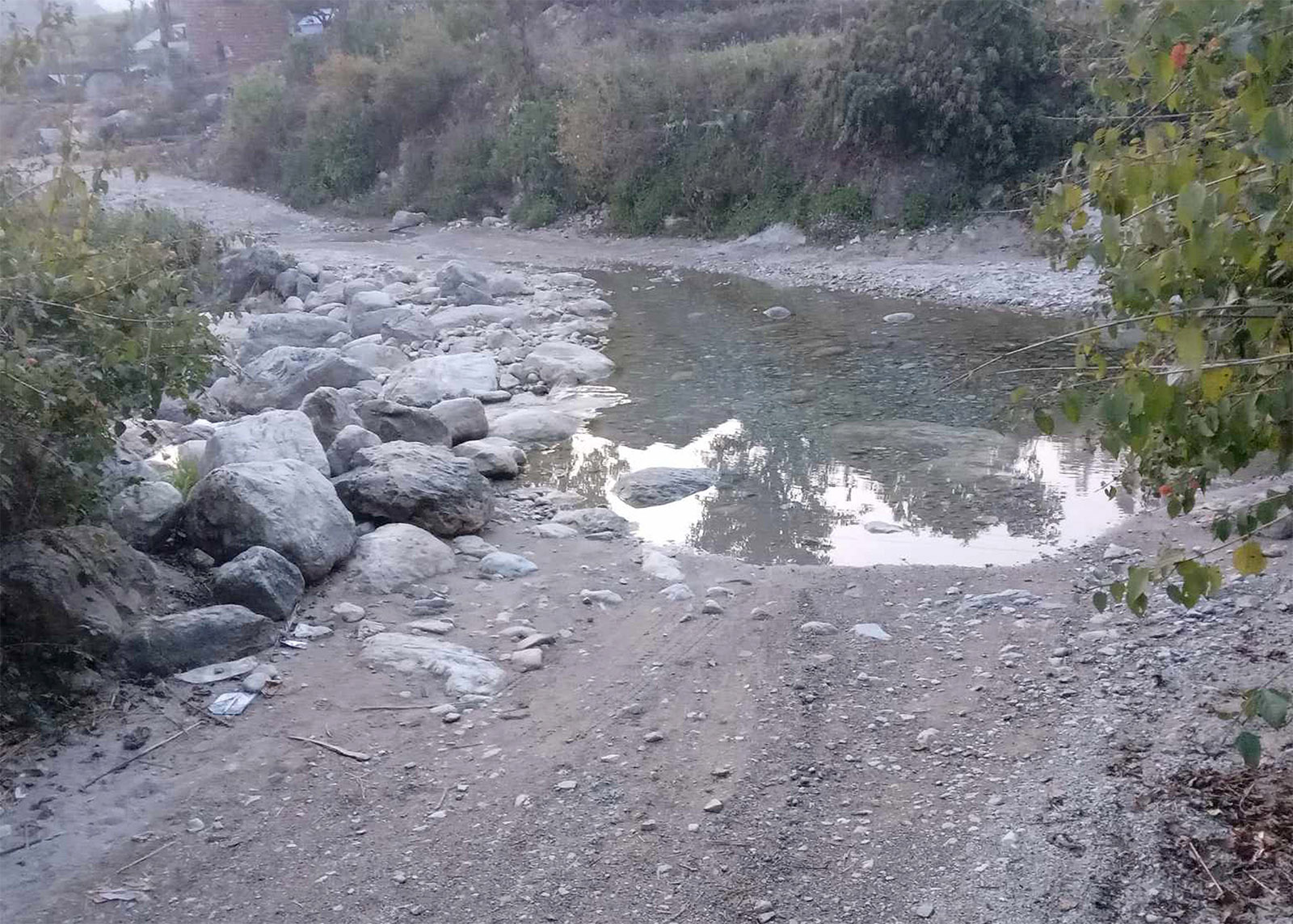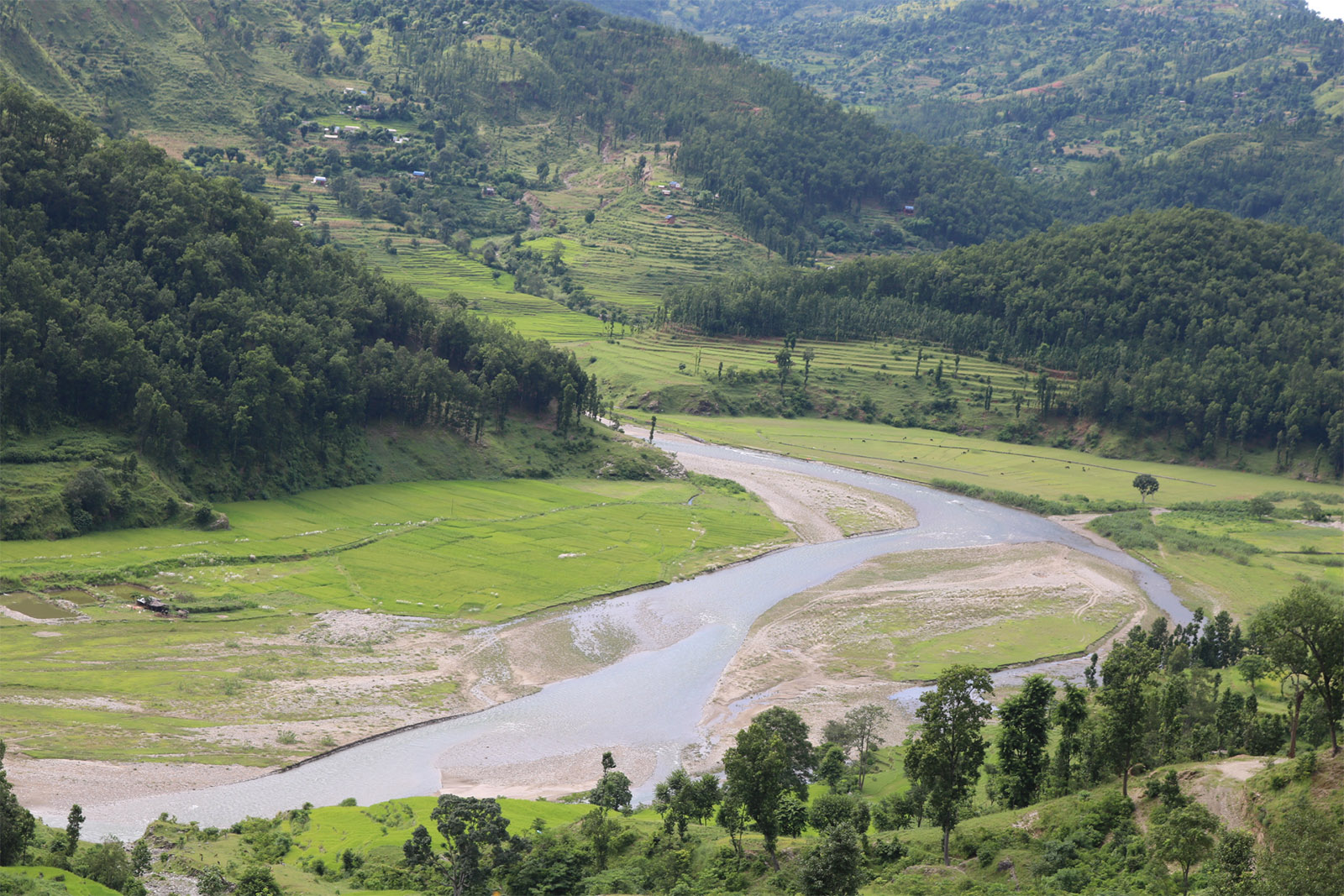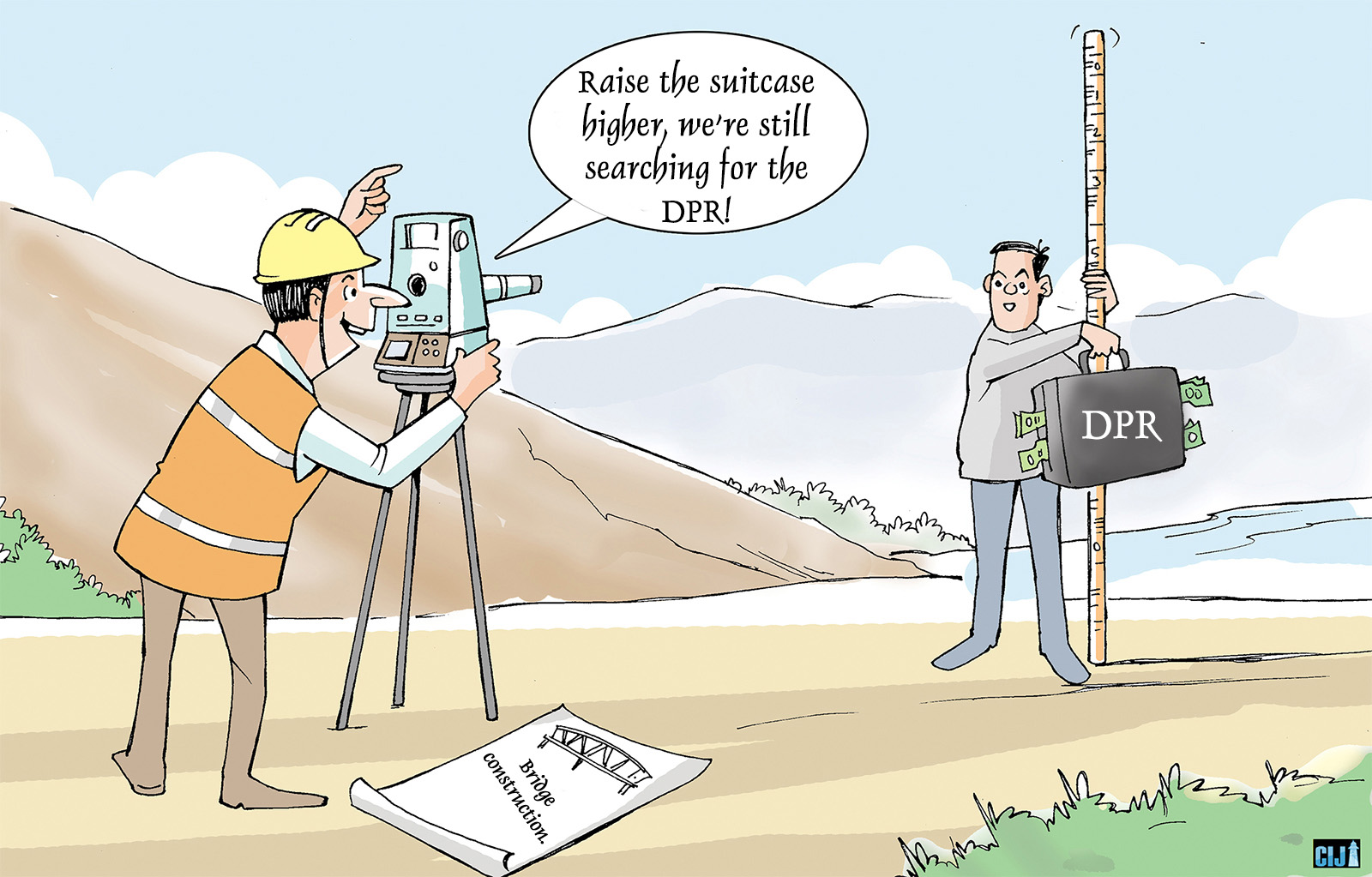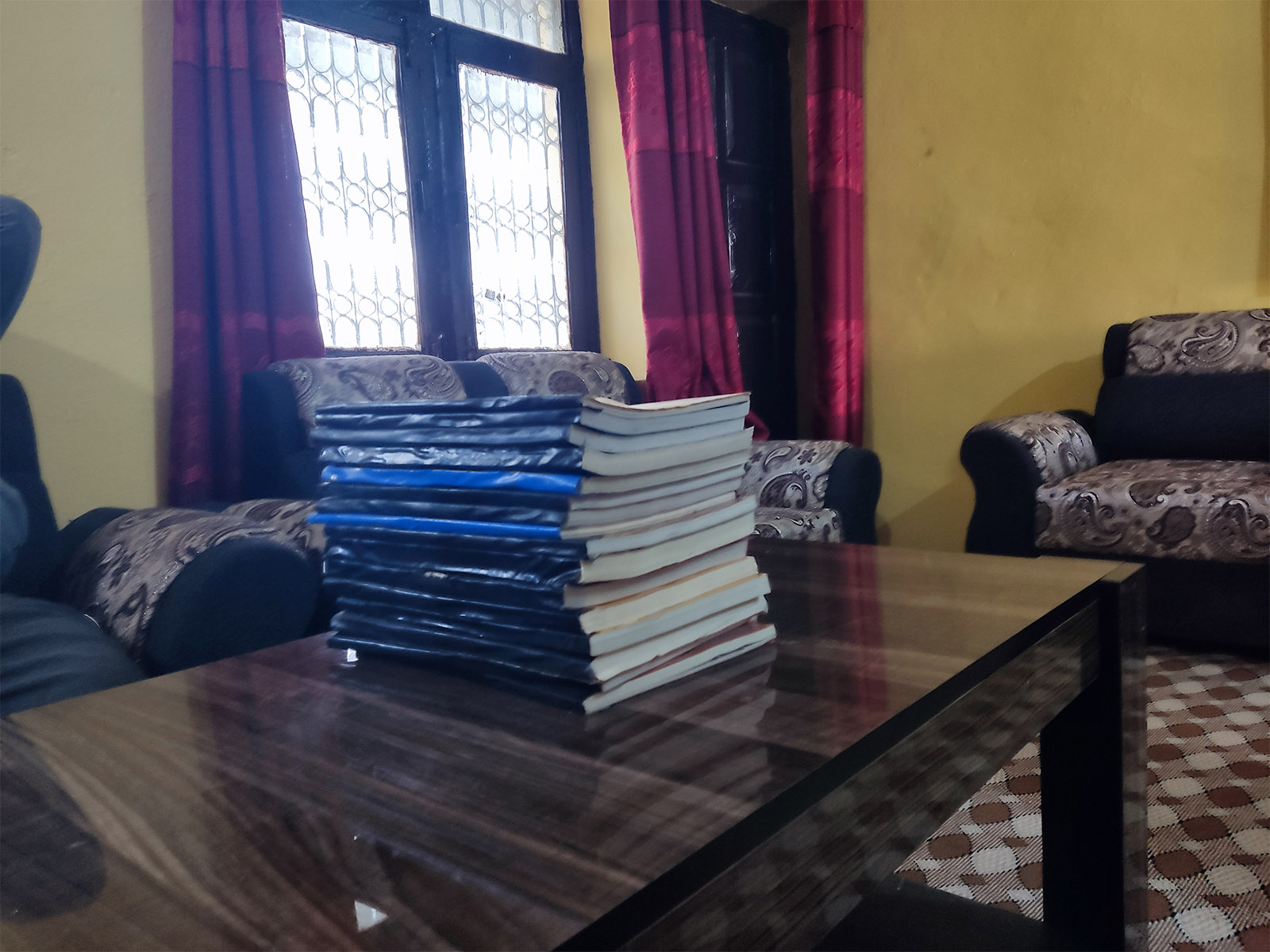Dozens of DPRs are prepared at the behest of politicians every year in the province but the provincial government has no record of how many of these projects have been implemented.
Jyoti Katuwal | CIJ Nepal
In 2076 BS, authorities prepared a detailed project report (DPR) for a bridge construction at Jumkhola in Salyan’s Kalimati Rural Municipality-5. Four years on, a budget has yet to be allocated for the construction.
Likewise, in 2077 BS, a DPR was prepared at the cost of Rs 1 million for a bridge over Deuta stream at Sanibheri Municipality in Rukum West. But here too work is yet to start.
According to Infrastructure Development Office, Rukum West, five other projects whose DPRs have already been prepared are yet to start—the Pumakhola bridge connecting ward 1 and 2 of Bafikot Rural Municipality; Tilchakhola bridge connecting wards 3 and 4; Deutakhola bridge in Sanobheri Rural Municipality-5; Nuwakot-Timile bridge and Jaharikhola-Barmathan bridge. As much as Rs5 million has been spent to prepare the DPRs for these projects in Rukum West.
Among these shelved DPRs in Salyan, Rukum West, Kalikot and Jajarkot districts, most were prepared during the tenure of then finance minister Janardan Sharma and then chief minister of Karnali province Mahendra Bahadur Shahi.
In Salyan’s Kalimati Rural Municipality-4, a DPR prepared at the cost of Rs1.1 million for a bridge construction over Dimurekhola remains shelved. DPRs that Salyan’s Infrastructure Development Office has prepared at the cost of over Rs 10 million over the past four years also remain shelved.

Despite the completion of the DPR in 2076, the bridge at Dimurekhola, Salyan Kalimati Rural Municipality-4 remains unbuilt. Photo by Biplav Marhajan.
Chair of Kalimati Rural Municipality Dan Bahadur KC doesn’t know himself how many DPRs have been prepared so far for projects inside his own local unit. He says that because the budget hasn’t been disbursed for the projects with DPRs ready, they are yet to be implemented.
“The local unit budget is not enough for those projects, but people complain about projects not taking off despite having DPRs ready,” KC says. “We don’t know who prepared the DPRs and who will build the projects.”
During the budget for fiscal year 2076-77 BS, as much as Rs 4 billion 930 million was allocated for DPRs, feasibility studies, preliminary environmental tests and environmental impact assessments. Of this, the provincial government has no record of how many of these projects were implemented, and how many DPRs were shelved.
According to the then chief of Provincial Treasury Controller Office Man Bahadur Bam, records from his office show as much as Rs 490 million 181 thousand has been spent under DPR heading in the past four years.
There’s no account of DPRs and feasibility studies done separately from offices under the ministry besides the ones mentioned in the budget.
Between the fiscal years 2076 BS and 2079 BS, as much as Rs 29 million 800 thousand has been spent for DPR preparations in Rukum West; Rs 28.5 million in Salyan; and Rs 18 million in Kalikot. Of these, most projects are yet to take off.
Collusion of leaders and middlemen
According to an official at the Infrastructure Development Office, authorities allocating the budget for DPRs also assign the work themselves. “How would DPRs prepared solely to give someone employment come into implementation?” the official says.
Karna Bahadur Oli, member of CPN-UML’s Karnali provincial committee, accuses that there’s a ‘syndicate’ of Maoist cadres in all of Rukum’s public offices. “Whatever projects come to Rukum, they come straight from Janardan Sharma’s phone,” Oli says. “It is his cadres who are involved in those projects and who finish up the budget.”
When CIJ contacted Sharma to talk about Oli’s allegations, his personal assistant Lokendra Airi picked up the call and said it was not possible to talk to the ex minister as he was busy.
Chief of Dailekh’s Infrastructure Development Office Prabhakar Singh too says that ministers and parliamentarians provide the name of consultants themselves to prepare DPRs and feasibility studies. According to him, those who work on the projects are assigned by ministers themselves. Those who allocate the budget for the projects also allocate who would work on them.

Infrastructure development plans in Dailekh’s office have been at a standstill since 2076 due to budget constraints.
The Kotila Lake construction is an ambitious project proposed in Panchakoshi, Dailekh. In 2077 BS, the Nepal Engineering and Management Association and Pashchimanchal JV started preparing DPR for the project that involved the construction of a lake sprawling over 54 hectare area and with a capacity of about 400 crore litre water. Loman Sharma, chair of Narayan Municipality, says that while the DPR was prepared, there was not enough budget for the project. “The local unit doesn’t have sufficient budget while the federal and provincial governments do not care,” Sharma says. “We have applied for budget with various agencies.”
Meanwhile, Sandesh Kumar Shrestha, chair of Narayan Municipality’s ward 1, says that when they asked for a budget with the ministry, technicians questioned the credibility of the DPR itself. “Asked for budget to start work on the project, they say there are problems in the DPR,” Shrestha says. “When leaders devise projects to appease their cadres, this tends to be the result.”
Between fiscal years 2076-77 and 2079-80, the Infrastructure Development Office, Dolpa has spent Rs 30 million and 15000 for DPRs. But nine of the projects with their DPR ready are yet to begin owing to lack of budget. In 2078 BS, as much as Rs 2.5 million was allocated to prepare DPRs for five projects, which are also yet to take off.
DPR for a ropeway courts controversy
The Kotwada-Manma cable car project was much-hyped during the tenure of chief minister Mahendra Bahadur Shahi. The DPR for this ropeway project, which would connect Naraharinath Municipality in Kalikot to Khadachakra Municipality, has also courted controversy.
After a DPR prepared in 2078 BS at the cost of Rs 1 million 730 thousand was found to be substandard, a year was further extended for the new DPR, according to Ramchandra BC, chief of Infrastructure Development Office, Kalikot.
The DPR should have been completed within five months of agreement but three years on, it still remains incomplete, hence the consultancy is given a year’s extension, BC said.
Gunaraj Dhakal, chief of the company assigned with the DPR job, the Kupondole-based Ropeway Nepal, however, says that even though they prepared DPR within the deadline, they haven’t received the agreed amount for the work. “We have spent Rs 9 million for the work but we have gotten only Rs 800,000 so far,” Dhakal says. “We haven’t received the amount because we refused to pay the commission. We have already submitted the DPR.”

Behold Kotila Lake nestled in the heart of Panchkoshi, where Narayan and Dullu municipalities meet in Dailekh.
According to the Infrastructure Development Office in Kalikot, locals are facing problems because of a lack of bridge connecting Sani Triveni Rural Municipality and Raskot Municipality. But a DPR prepared for the bridge even before there was a road has remained shelved. According to the office, as many as 13 DPRs prepared in the past four months remain shelved.
Nagendra Shahi, a local of Kalikot and UML central committee member, says that because selfish leaders haven’t paid attention to local needs, the budget is being misused.
“While there aren’t even horseways in the villages, leaders propose ropeway projects,” Shahi says. “In villages, people face problems for lack of even the basic medication but leaders talk about tunnel ways.” Shahi further alleged that government officials are often involved in making DPRs haphazardly and shelving them.
The provincial government had disbursed as much as Rs 120 million for DPRs of various projects in fiscal year 2076-77 BS. In 2078-79, it had disbursed Rs 48 million 400 thousand and Rs 21.5 million in 2079-80. But it doesn’t have a record of how many of these DPRs went into implementation and how many were shelved.
Chief Minister Mahendra Bahadur Shahi says that while DPRs were done for projects not included in the red book, the budget was disbursed for such projects. “Ministries might have done DPRs on their own without any study, that’s why they remain shelved,” Shahi says. “No illicit work has been done in my tenure.”
Work against law
In Karnali, it has been found that a single office has allowed DPR work repeatedly in a single year. But according to the public procurement act, a single office can only assign work for a company once in a year. But the provincial government has repeatedly assigned DPR work for a single company through RFP (request for proposal).
According to clause 85 (1) of the public procurement act, the government cannot purchase goods or receive services from a single company repeatedly in a single year.
Chandra Rana of Jajarkot’s Shivalaya Rural Municipality has three consultancy companies—Move Engineering Consultancy and Research, Surkhet; Moon Engineering Consultancy and Research, Surkhet; and Aarambha Engineering Consultancy, Lalitpur.

The first is registered under the name of Chandra’s younger brother Keshav while Aarambha is registered under his friend’s name.
Chandra has taken responsibility for 10 DPRs within four years from the Infrastructure Development Office, Jajarkot using three forms. Of the 27 DPRs carried out in the period, 10 were assigned to Chandra’s companies.
Chandra seems to have received the work directly during the tenure of then chief minister Mahendra Bahadur Shahi.
Likewise, in Dolpa, Salyan, Kalikot, Mugu, and Jumla, too, a single company has received up to 10 assignments for DPR from a single office in four years.
Chief of the Infrastructure Office, Sohindar Yadav, says that since Chandra is a local, he might have been prioritised. “The chief before me tended to assign work to him, but I have distributed work to others too,” Yadav says.
Yadav adds that ministry officials and political leaders pressurise them to assign DPR work to companies of their favour, hence quality has taken a back seat. “The company officials cite the chief minister and infrastructure minister’s names, hence we are compelled to oblige.”
The infrastructure office in Rukum West in 2077-78 assigned Civil Work Consultancy for DPR work in Nuwakot-Timile road and Sanakhola bridge. Likewise, Five Star Engineering Consultancy received assignment for Jaharikhola-Barmathan bridge in 2078-79 and MK Consultant and Construction received assignment for DPR for Tilchakhola bridge in Kathmandu. All these DPRs, however, were prepared without abiding by law and are currently shelved, with no progress on projects.
In Rukum, DPR work was assigned to Civil Work Consultancy for Deutakhola bridge and Nuwakot-Timile road in 2077-78 BS. A year later, the same company was assigned DPR for three other projects.
Likewise, PS Engineering Consultants has also done two DPR works in 2077 BS. Applied Engineering PVT LTD has done DPR for two roads in 2078 BS, as assigned by the infrastructure office, Salyan.

Of the 38 DPRs that the Salyan infrastructure office has prepared in the past four years, work is yet to begin in 10 projects for lack of a budget. Prabin Karki, former chief of Jajarkot infrastructure office and information officer at ministry of infrastructure, says, “Politicians ask officials to start DPR work with the promise they’d help manage the budget, but many such projects haven’t been implemented.”
Bishnu Bhandari, secretary of Karnali provincial ministry of infrastructure and urban development, says it is a matter of investigation how a single company was assigned DPR more than once in a single year. “This is against law,” he says. “A heavy sum seems to have been invested in DPRs but only a few of them have gone into implementation.”
Deputy chair of provincial planning commission, Yogendra Shahi, says that the ministry concerned hasn’t prioritised projects recommended by the commission in the past four years.
“The government didn’t pay attention to big projects. It instead began to spend Rs 1 million in DPR for projects worth Rs 2 million,” Shahi says. “There is a different story about projects conceived at the behest of middlemen and their DPRs.” He adds that in Karnali, DPR is synonymous with a lucrative deal.
Shahi says that the provincial government should pay special attention while selecting projects.
“The government has been unable to monitor why DPRs were prepared and why they were not implemented,” he said. “The projects should have benefitted the whole region but they have benefited only the politicians and their cadres.”



